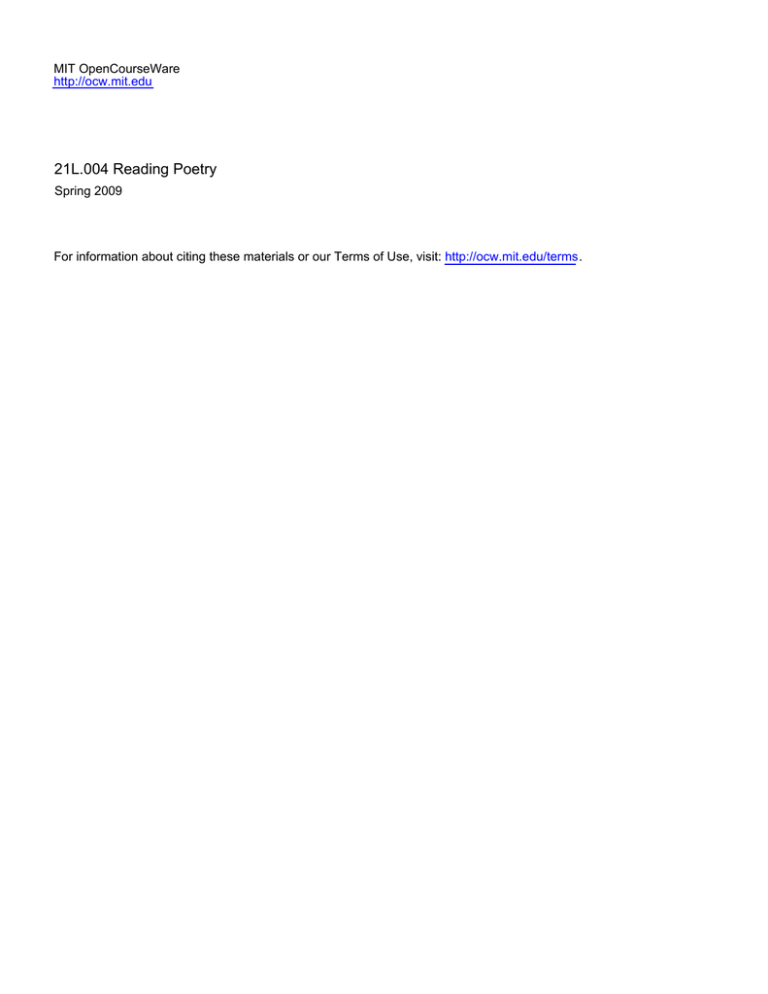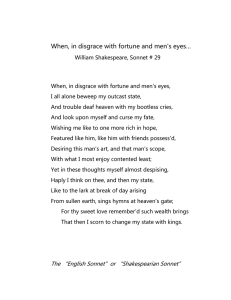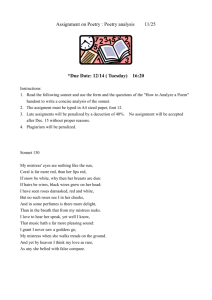21L.004 Reading Poetry
advertisement

MIT OpenCourseWare http://ocw.mit.edu 21L.004 Reading Poetry Spring 2009 For information about citing these materials or our Terms of Use, visit: http://ocw.mit.edu/terms. Do’s and Don’ts for your essays Note: these are things you should think about after you’ve done most of the work of writing your paper. In other words, have ideas and build argument first, edit last. Do: 1. Assume the reader knows the basics (e.g., Shakespeare is famous, a sonnet has 14 lines, etc.). 2. Be concise. 3. Focus on the language of the poem. 4. Write your introduction last, and use it to explain what, specifically, you will talk about in the essay. 5. Try reading your sentences out loud to see if they make sense, and whether you can think of a simpler/clearer way to phrase key points. Don’t: 1. Give your essay an uninformative title: e.g., "To His Coy Mistress". (As opposed to, say: “To His Coy Mistress: A Convincing Argument for Sex"). 2. Begin with the history of the world: e.g., "Since the beginning of time, people have fallen in love.” 3. Dangle modifiers: e.g., "Reading your paper, dangling modifiers struck my eye." The underlined phrase (typically, modifying phrases begin with "[verb]-ing") modifies or describes the grammatical subject of the sentence’s main verb; here, the subject is "modifiers". Fix it so modifier and subject match: e.g., 1. "Reading your paper, I was struck by the number of dangling modifiers"; 2. "As I read your paper, dangling modifiers struck my eye." 4. Begin sentences with "This" as subject": e.g., "This is what the sonnet is really about.” Fix the problem by adding (at least) a noun: e.g., "This conflict [+ between virtue and desire] is what the sonnet is really about. 5. Overuse forms of "to be" (only if you have time to edit for style): e.g., revise the above as "this sonnet centers on the conflict between virtue and desire." 6. Quote bits of poems such that the resulting grammar of either the quotation or your sentence isn’t clear: e.g., "Shakespeare writes `when in disgrace with’ to say that he is sometimes looked down on by others." Fix it so that meaning and grammar are clear by choosing a slightly different bit to quote: "Shakespeare writes that he is sometimes `in disgrace with fortune and men’s eyes,’ or out of favor both with cosmic forces and other people.”


